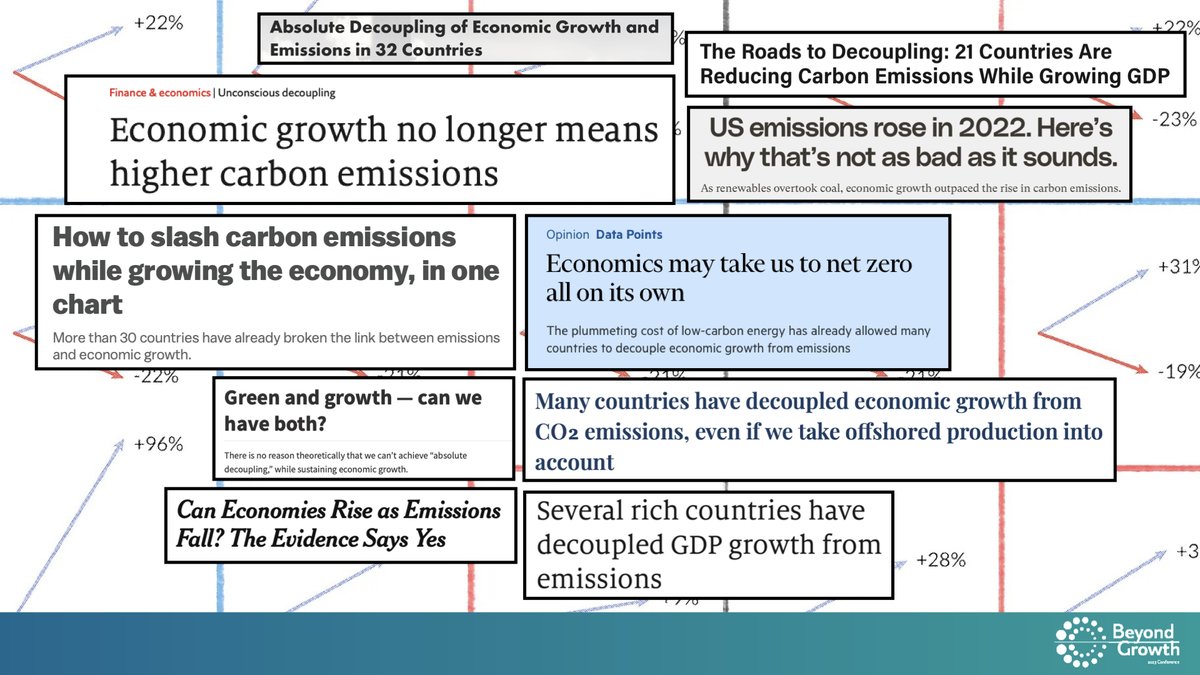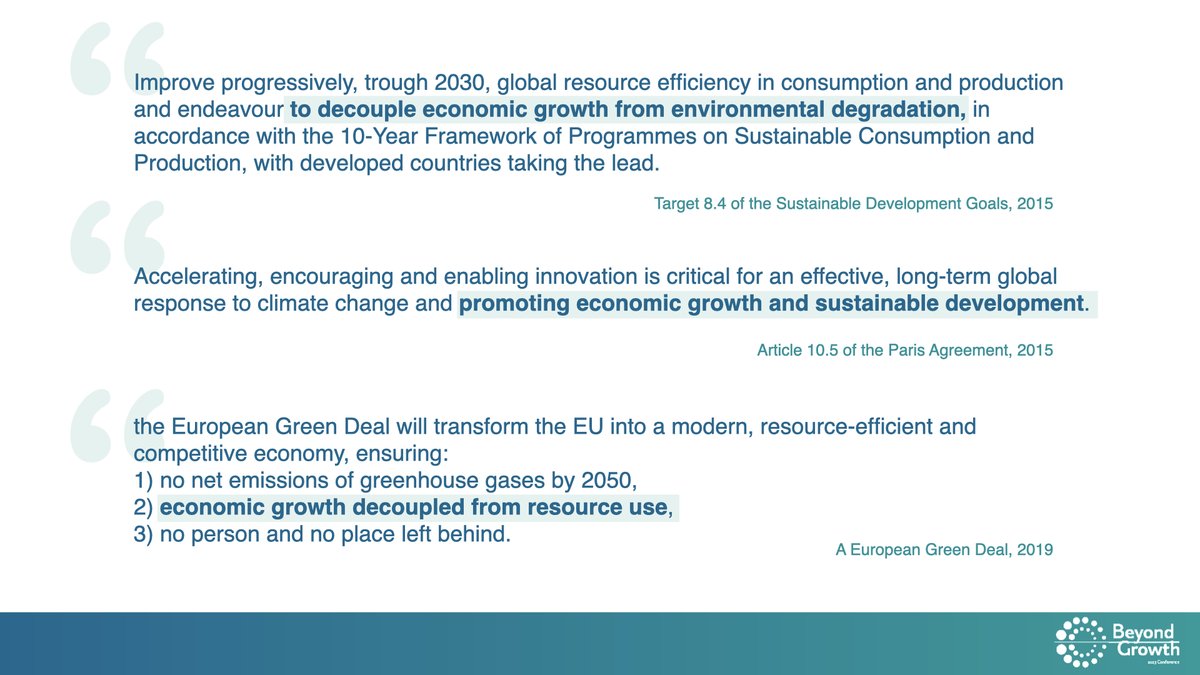This study by @JefimVogel et al. (2021) shows that it is possible to satisfy human needs within a sustainable level of energy use.
THREAD/
THREAD/

1/ Looking at 106 countries, it analyses how the relationship between energy use and need satisfaction varies with a range of socio-economic factors relevant to the provisioning of goods and services. 

3/ “Whereas at low levels of energy use, need satisfaction steeply increases with energy use, need satisfaction improvements with additional energy use quickly diminish at moderate levels of energy use and virtually vanish at high levels of energy use" 

4/ Provisioning factors can either be “beneficial”, “insignificant”, or “detrimental” for need satisfaction. 

5/ For example, countries with high quality public services reach higher levels of “healthy life expectancy” at a lower energy cost than the ones with poorer pubic services. On the other hand, extractivism always brings down life expectancy and brings up energy footprint. 

6/ Other example: beyond moderate levels of affluence, economic growth becomes detrimental to socio-ecological performance. 

7/ Finding n°1: Need satisfaction is not a matter of energy, but rather one of how a country organises its provision system. 

9/ If that’s true, let’s stop organising our economies around the pursuit of economic growth (a provisioning factors that is actually detrimental to wellbeing and sustainability), and let’s focus on factors that matter. 

10/ Here are a few policies recommended by the authors in order to maximise need satisfaction while minimising energy use. 

11/ When you think “development,” don’t think “growth”; think “sustainable need satisfaction.”
sciencedirect.com/science/articl…
END THREAD/
sciencedirect.com/science/articl…
END THREAD/
• • •
Missing some Tweet in this thread? You can try to
force a refresh




















